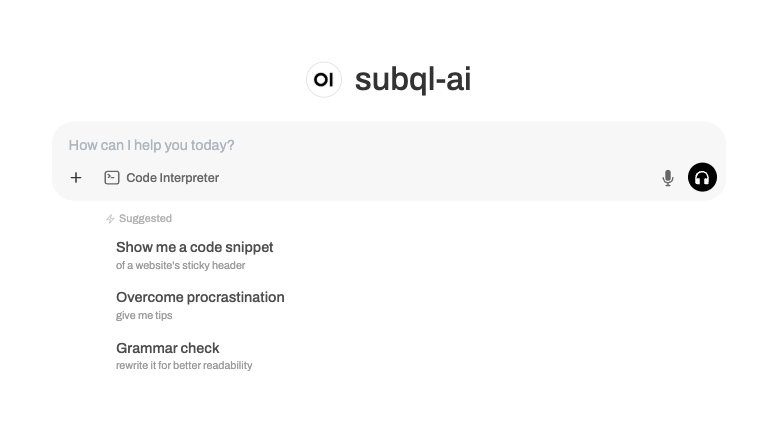Designing an Event Marketing Budget? Here’s What Experts Recommend
The year I turned 30, I started a new job. The role was a management position and carried strategic responsibility for marketing, communications and PR — all things I was excited about.

The year I turned 30, I started a new job. The role was a management position and carried strategic responsibility for marketing, communications and PR — all things I was excited about.
Also tucked in the job description? Event planning for a festival and various smaller events. I didn’t know it yet, but I was about to take a crash course in event marketing.
Event marketing is planning and executing an event with the goal of promoting a brand and its products and services. Events are opportunities for building brand awareness, engaging target audiences including new and existing customers, and generating leads.
Because the goals fall under marketing, the responsibility typically falls to the marketing team. Planning an event that attracts prospects and makes an impact starts with your event marketing budget.
I’ll walk you through how to create an event marketing budget with what to include and share tips from event planning experts along the way.
Deal? Let’s get started.
Table of Contents
How much of your marketing budget should be for events?
First, how much of your marketing budget should you dedicate to events? Experts say that companies spend around 10-20% of their marketing budgets on events on average.
Gartner found companies spend an average of 17.1% of marketing budgets on event marketing, while Amex found the number to be closer to 14%. This is on the rise, especially in the past two years. A Zuddl survey found that over 50% of marketers expect budget increases.
Of course, this number depends on many factors. What’s your industry? What is the goal and ROI of each event? Is the budget offset by ticket or sponsor revenue? Is your event in-person, virtual, or hybrid? Take all of these questions into consideration as you plan.
Event Marketing Budget Formula
Let’s take a ballpark percentage of 16% and calculate your event marketing budget from it.
Annual marketing budget X 0.16 = Event marketing budget
So if your marketing budget is $1 million, calculate 1M X 0.16 = $160,000 to estimate a good event budget.
What does an event marketing budget go toward?
Calculating a budget based on an industry average only gets you so far. To propose a realistic budget, you also need to research the estimated expenses to pull off your vision.
According to Knowland’s 2023 State of the Meetings Industry, increasing event expenses is one of the biggest concerns for event organizers. Almost half (46.3%) of event professionals said rising costs are their biggest obstacle when planning events.
Here’s how Zuddl found B2B companies broke down their event budgets.
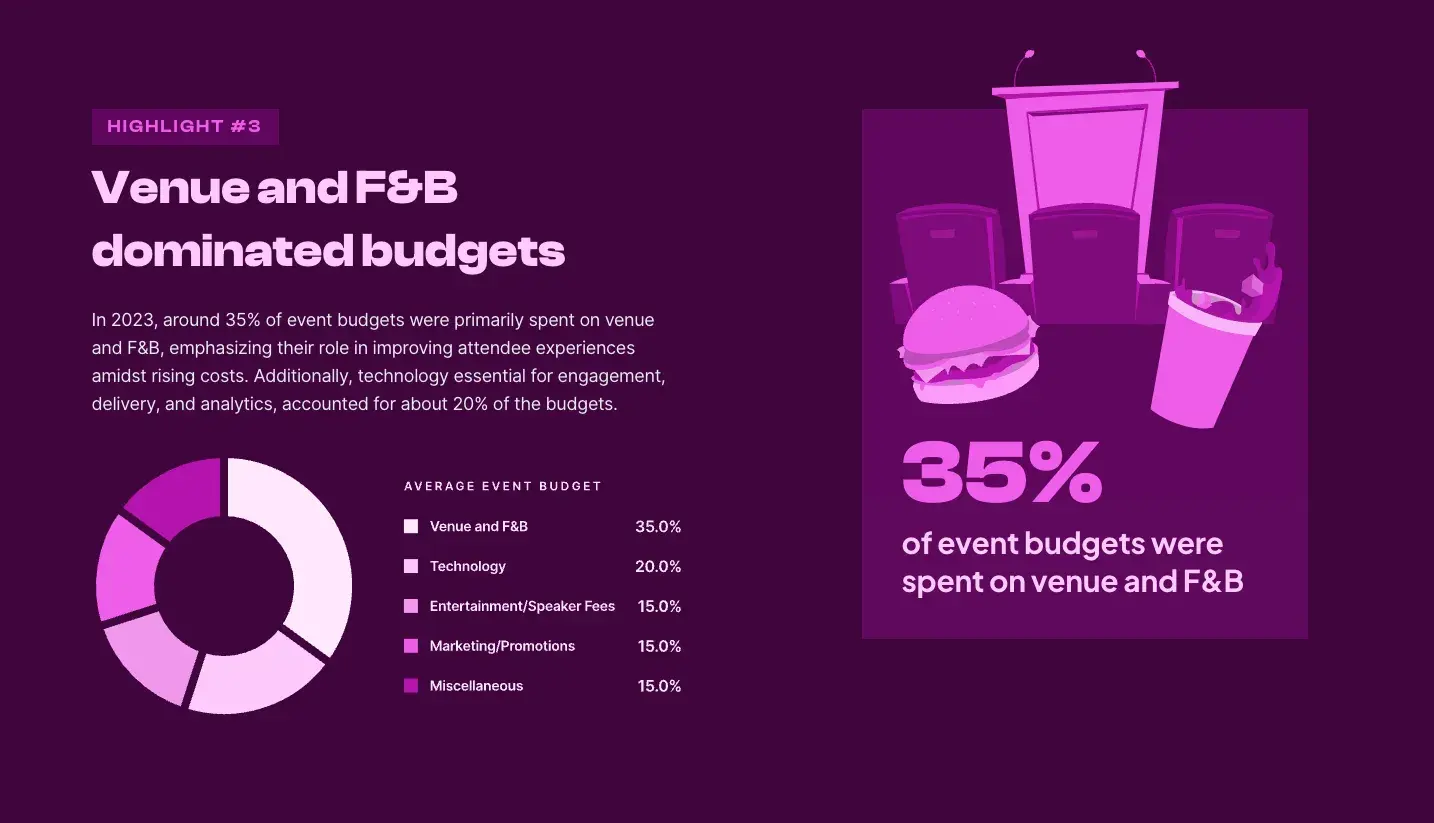
Here’s what to consider as you plan your event.
1. Venue and Food/Beverage Cost
Venue and food/beverage is typically the largest budget item for events, eating up 15-35% of your overall budget. This goes far beyond room rental fees. Don’t forget to look for any hidden costs that might pop up.
Here are some factors to keep in mind:
- Event location. Venues in major markets have a price tag to match. While some event organizers save on costs by moving their events to secondary markets, this can impact attendance. Conference attendees rate venue location and travel/accommodation costs as two of their top three priorities when deciding whether to attend an in-person event.
- Food/beverage. Will you provide coffee, snacks, and meals, or expect attendees to purchase them on their own? Your choice impacts the event experience, especially if attendees need to leave the event to buy food. A Bizzabo survey found that catering alone accounted for 20% of event budgets.
- A/V (Audiovisual) needs. For each room you rent, you likely need a lighting or IT technician to make sure everything’s running smoothly. 55.4% of event planners expect A/V costs to rise by over 20% in the near future. Bizzabo reports that event planners spend nearly 8% of event budgets on AV alone.
- Set design. If you have a keynote stage, consider the set design and what it will cost to get the look you want.
2. Entertainment/Speaker Fees
Marketers spend 15% of an event budget on average on speakers and entertainment. Be sure to budget an honorarium and possibly accommodations for your keynote speakers and consider whether you’ll book a band or other entertainment to set the mood.
3. Technology
Technology has grown to become a huge part of the event experience. If you run a hybrid or virtual event, technology will make or break the experience and should make up a larger percentage of the budget.
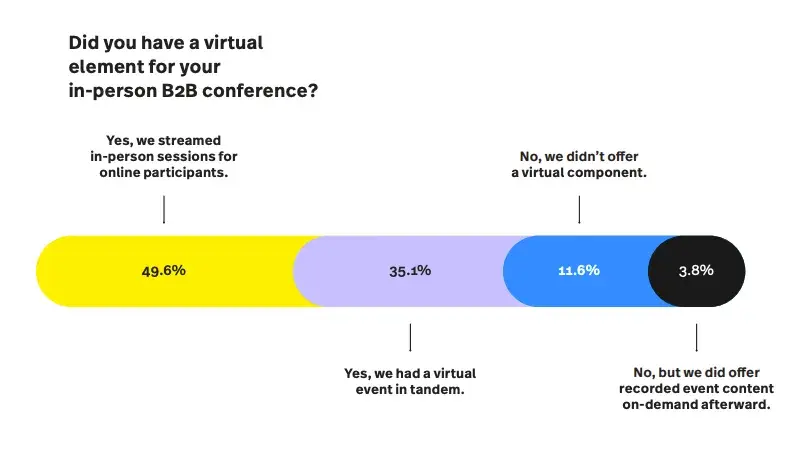
Consider these event statistics:
- 65% of events post-pandemic are primarily in-person, followed by 20% virtual and 15% hybrid
- Almost 9 in 10 events offer some kind of virtual component or recording afterward
- 63% of attendees expect in-person conferences to use modern technology
- 69% of organizers say event software has a major impact on the success of their events
- 68% of attendees say it’s vital to have a mobile event app, and 56% say the app can make or break their event experience.
Technology budget items to consider include registration and event management software, live or after-event streaming, and a mobile app.
4. Marketing
Your event can’t drive brand awareness or deals if your target audience isn’t there. So, marketing is key to making sure the right audience is there to hear your message. Consider these costs and channels to attract attendees.
- Digital ad campaigns. Digital ads are one of the fastest and most cost-effective ways to market an event. For B2C events, consider location or interests when targeting your demographics for digital ads. For B2B, use social media retargeting or keyword search to connect with relevant audiences.
- Direct mail campaign. Direct mail is more expensive but can be highly effective if you’re inviting members or current customers to your event. Printed invitations stand out from the digital noise and add gravitas to your event.
- Print and out-of-home advertising. If you’re running a consumer event like a food festival, consider local ad placement on billboards, buses, or in local magazines to reach interested parties.
- Sponsorships and cross-marketing. Work with industry groups or local partners to cross-market your event to similar audiences. This can be free (the best!) or can incur a sponsorship cost, like placing an event ad in a relevant email newsletter.
- Agencies and consultants. Almost half of event planners work with a marketing agency for their events, according to the Amex 2024 Global Meetings and Events Forecast. An event marketing agency can market your event through creative design, advertising strategy in markets you don’t know well, or PR for media coverage.
- Owned and organic channels. Remember that some of the best tactics like email marketing, organic social media marketing, and word-of-mouth carry little-to-no cost.
Keep in mind that new events will need a larger marketing effort than established ones since they don’t yet have brand recognition and returning attendees.
Consider allocating 10-15% of your event budget to marketing a recurring event and 15-20% of your budget to marketing a new one.
5. Signage and Swag
Don’t forget about the little things! Printed signage helps attendees navigate your event smoothly and can bring in more street traffic for unticketed events.
Name badges, branded pop-up banners, and other little touches serve both a functional and aesthetic purpose.
Swag and giveaways help to drive excitement about your event and give attendees a reason to remember the event after the fact.
6. Accessibility and Sustainability
Nearly 60% of event marketers have a plan for addressing accessibility and inclusivity, Zuddl found. Extra may include closed captioning and interpretation for sign language and multiple languages. Other costs may be wrapped into technology or venue choice to reach your inclusivity goals.
While sustainability is still a lower priority (prioritized by 34% of event organizers), it is growing. B2B event attendees rank sustainable practices as the fifth most important factor in attending an event, beating out registration cost, exhibitors, and speakers/content.
Strategies may include selecting green venues, local sourcing, or hosting virtual events. Another strategy could be investing in a refillable water station and branded water bottles instead of plastic ones. Like accessibility, sustainability can touch multiple budget categories like venue, food and drink, and swag.
7. Contingency and Insurance Fund
It happens. Snowstorms, venue damage, speaker cancellations, or higher costs than expected mean you could go over budget or even need to cancel without recouping costs. Allocate at least 5% of your budget to a contingency fund and insure your event in case you need to cancel and issue refunds.
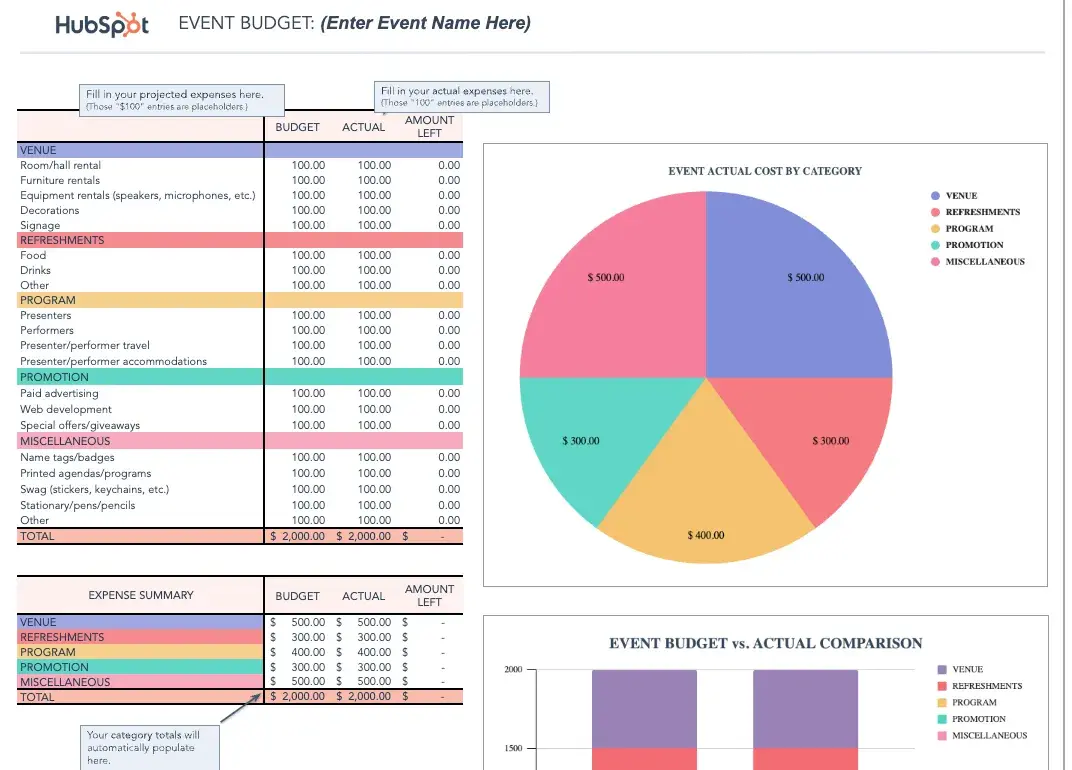
How to Create an Event Marketing Budget
Now that you understand the main categories, it’s time to roll up your sleeves and get to work. If you’re creating an event marketing budget for the first time, follow these steps.
1. Define your event goals and objectives.
First, discuss your goals and objectives for the event (or events). Saying your goals out loud will help you cast a vision and get approval from higher-ups for the budget you need.
2. Research and estimate costs.
Next, put on your research hat and research how much it will cost to pull off this vision. It might be that you’ve already been given a budget from above, so you want to see if that budget is enough to reach your goals.
Go through the budget items listed above and reach out to vendors to estimate your costs. Some of this research can be informal, while others may need a formal RFP process.
While you can do some of this research online, Googling only gets you so far. I’ve found that a phone call with a vendor or a venue visit can be much more effective than online research. Call other marketing professionals in your network and ask them about venues and tips for creating a good experience.
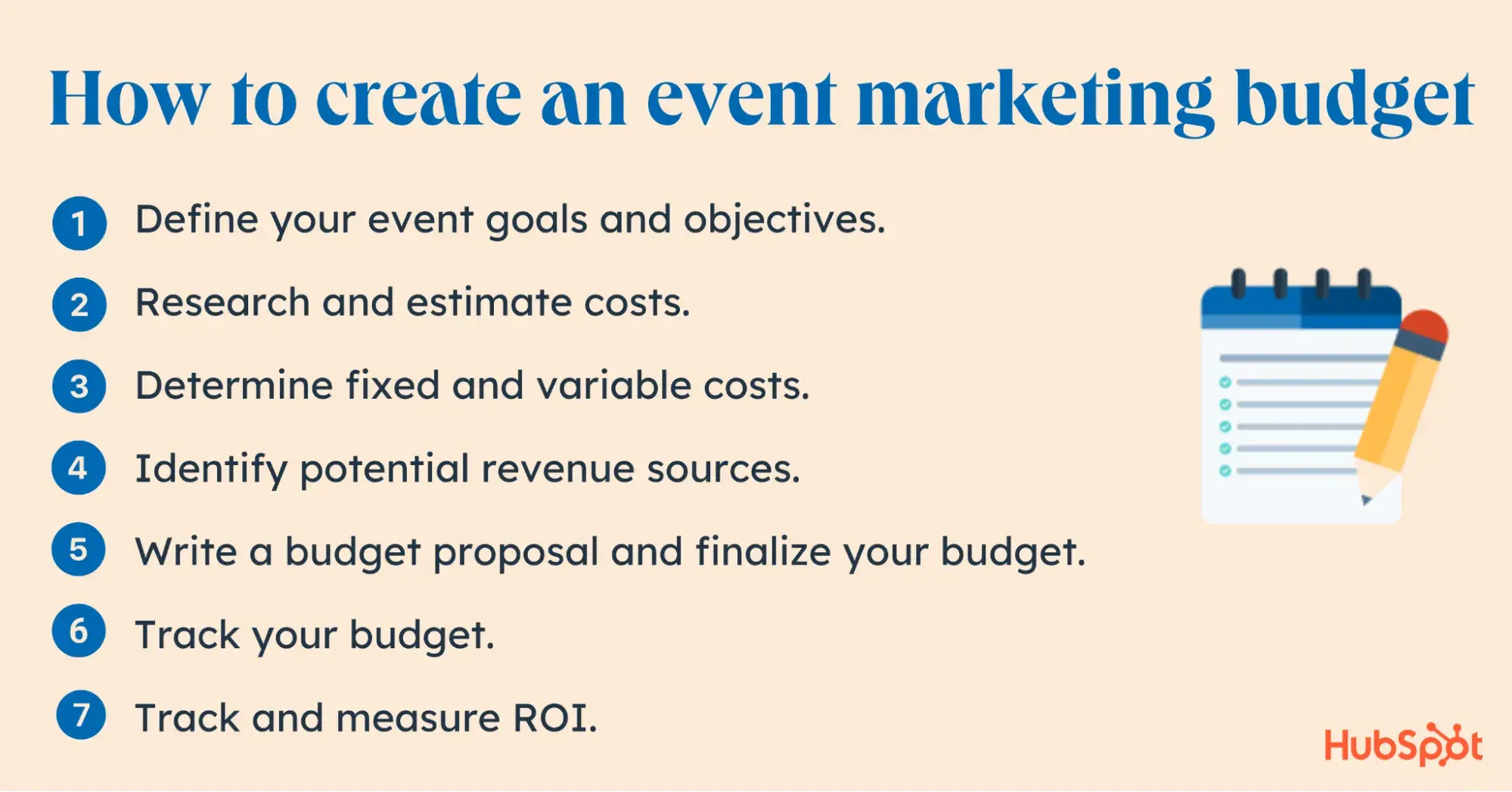
3. Determine fixed and variable costs.
In event planning, some costs are fixed while others are variable.
A venue rental is fixed, for example, while per-person catering fluctuates depending on registration numbers. Identifying these variations helps you understand how much money you need
This is also a good time to distinguish between must-have and wish-list budget items. For instance, you may determine that a mobile app is non-negotiable, but a floral budget may be a wish-list item to add only if you reach a certain revenue threshold.
4. Identify potential revenue sources.
When creating your budget, estimate how much you plan to bring in to offset your costs. The most common sources are ticket revenue, sponsorships, and merchandise. Estimate your target revenue and a minimum number you’ll need to bring in to break even.
5. Write a budget proposal and finalize your budget.
After all of the above steps, write a formal budget proposal outlining your event goals, budget breakdown, expected revenue, and fixed and variable costs.
If you have already received a budget number from leadership, you will need to make a compelling argument to increase that amount. Meet with leadership, answer any questions about the proposed budget, and consider creative adjustments until all parties are satisfied.
6. Track your budget.
Once you have the stamp of approval on your budget, get cracking on execution! Event planning takes months or even years, so tracking your spend is critical for success. There are a few different ways to track your budget.
Use a spreadsheet for budget tracking.
The simplest method is sometimes the best. Create a detailed budget spreadsheet with all of your projected expenses and revenues, and add in your revenue and spend as it comes in.
Get started by downloading HubSpot’s eight free budget tracking templates here.
Use budgeting software.
A dedicated budget and financial management software can help you track your budget plan, expenses, and receipts all in one place.
While common accounting software like QuickBooks can meet your needs, a dedicated events tool like Planning Pod, EventPro, or Cvent can manage budgeting in addition to registrations, project management, and other event functions.
Integrate with your marketing tracking.
Since event marketing is part of your overall marketing strategy, there’s a good argument for wrapping the spend tracking and ROI into your larger marketing tracking.
For instance, if you use HubSpot to manage your marketing campaigns, you can manage a campaign budget in Marketing Hub to promote your event. The tool will track your budget total, spend total, and remaining budget in real-time — and how many conversions resulted from the campaign.
7. Track and measure ROI.
Event ROI can be really tricky to measure. Registration numbers, attendee satisfaction surveys, session/booth engagement, and social media mentions are all good metrics to gauge success.
But here’s what’s even more valuable than reporting event registration numbers or budget totals — tracking the effectiveness of events on your KPIs, like leads and sales.
If your goal is marketing your brand and driving growth, you have to look deeper. When you track ROI, the results can be powerful. Zuddl survey participants reported that 44% see a 1-2X ROI, while 56% experience greater than 3X ROI.
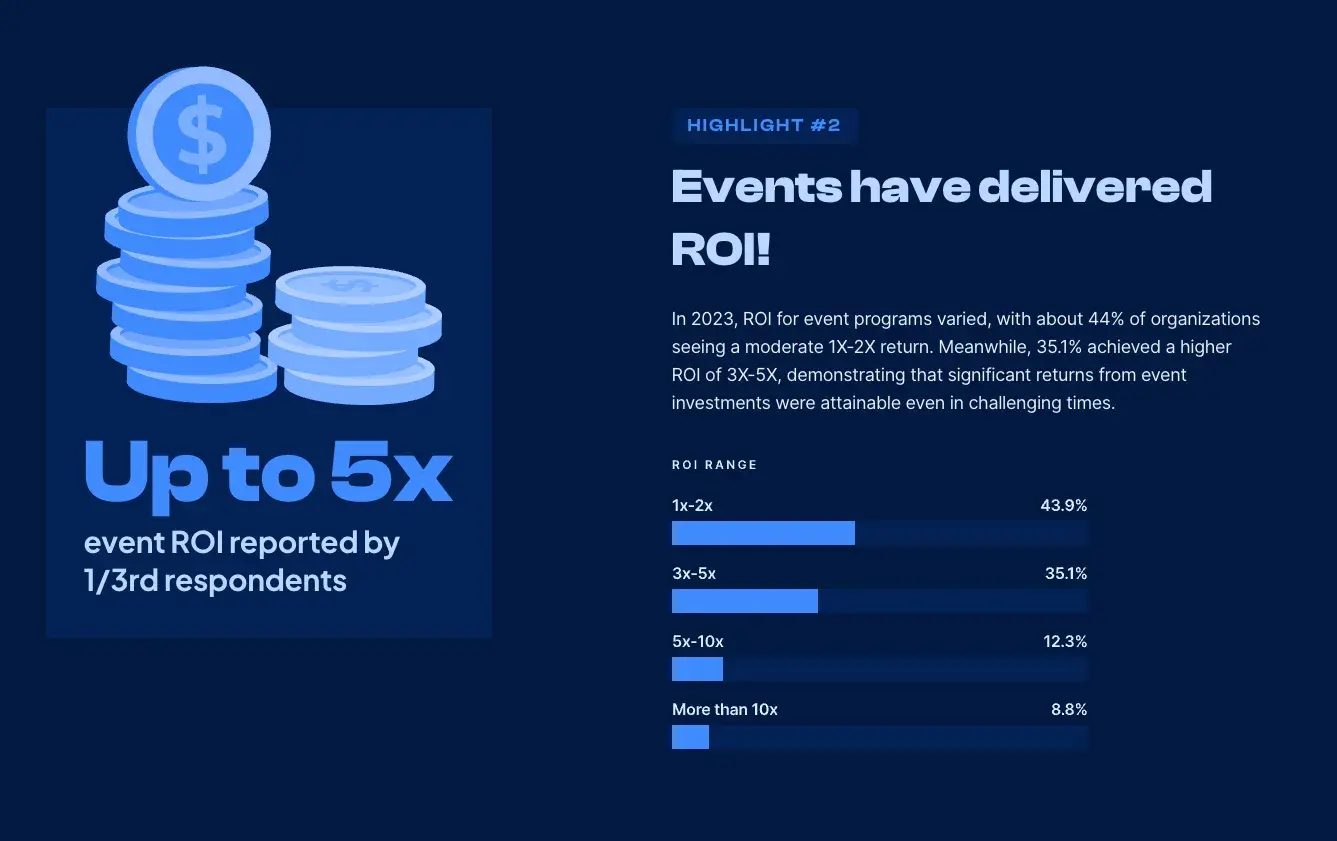
When it’s time for next year’s event budget cycle, you’ll need to prove that the event had some impact to justify the expense. Here’s one way that marketer Ryan Gunn used HubSpot to track the impact of in-person events on his pipeline.
“Measurement is always tough because events don't typically see results right away,” shared Drew Bush, senior events marketing manager at Propel.
“The influenced pipeline and positive feedback from customers and attendees will help drive future events and budgets, but it’s tough to define. I typically measure ROI by attendance and pipeline, deals, and upselling that are influenced by individuals who attended our event.”
Tips for Creating the Right Event Marketing Budget
I know I needed inspiration and mentorship to become a successful event planner. I asked experts for their best tips for event planning and budgeting. Here are the nuggets they shared.
1. Align stakeholders.
Creating an event marketing budget is often a collaborative, cross-departmental effort. It requires working with stakeholders in the initial budgeting process and continuing throughout the event lifecycle.
“Some of the toughest challenges are aligning with key stakeholders on the priorities for an event,” shared Bush.
“A great way to align on top priorities is to have kickoff meetings with stakeholders. In some cases, our teams have followed the RACI model and in others we've had weekly syncs with the executives to keep track of progress.”
2. Narrow down your ICP.
Understanding your audience is key to creating a successful event.
For instance, knowing that your audience values networking hours may lead you to prioritize food and beverage budgets for networking.
Conduct surveys year after year so you have the data to build the event your audience wants — and drive engagement and results.
Knowing your ideal customer profile (ICP) can also help you market your event more effectively and affordably.
“Our product team has worked really hard in determining our ICP so we know who to target,” shared Bush. “I’m a huge fan of social media, especially LinkedIn. This works well for our current team as we’ve determined our ICP.”
3. Consolidate vendors.
“If you're looking for a venue, you might want to go for a venue that will have all other vendors in-house,” recommended Lady Jane Acquah, Special Events Manager for Integral Care.
“From my experience, if you have a venue and you have to bring in people to bring in furniture, to do the floral arrangement, to provide AV or even catering — all of that is costly. But if you have one venue that can provide all of these services, it definitely cuts down on the price.”
The same goes for technology. The more you can consolidate tech platforms for registrations, event management, budgeting, advertising, and analytics, the more time and money you can save.
4. Leverage relationships.
While some costs are fixed, never underestimate the power of relationships in creating an effective event marketing budget. Work with good vendors again and again and don’t be afraid to negotiate to add services or cut costs.
Relationships and partnerships are also a free or low-cost way to market your event. Consider cross-marketing and strategic endorsements or event promotion from partners and longtime contacts to drive event interest.
Drive impact with a well-planned, well-executed event.
In my years planning events, the number-one thing I learned was to stay flexible.
No matter how well you plan, there will always be roadblocks and unexpected expenses that pop up.
Being detail-oriented is important, but the event planner who’s scrappy, creative, and negotiates well will succeed in event budget management.
From understanding how much to allocate to tracking expenses and measuring ROI, building a comprehensive event marketing budget sets you up for a seamless and impactful experience.
Remember to be flexible, consult experts when needed, and always keep your event goals and audience top of mind.
![]()
What's Your Reaction?










![The 12 Best Free Flowchart Templates [+ Examples]](https://www.hubspot.com/hubfs/free-flowchart-template-1-20240716-6679104-1.webp)
































.png)




















